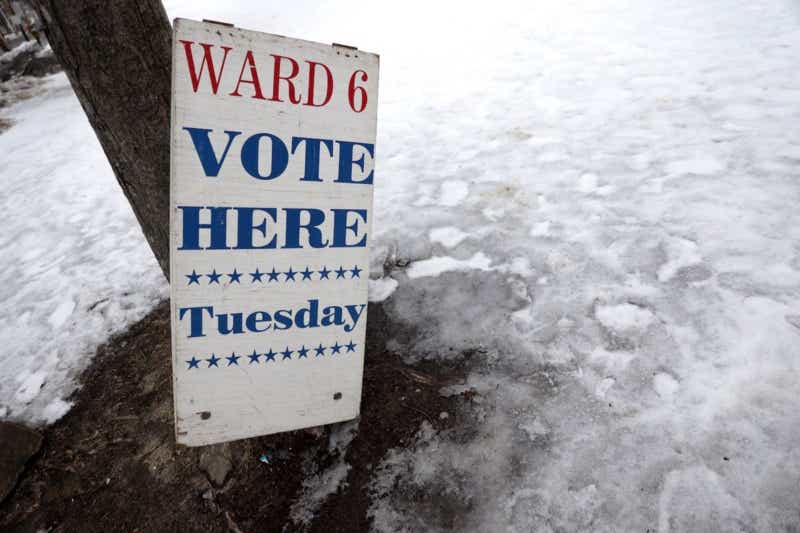And which candidate could face their “moment of truth.”
The Democratic primary field could look a lot different after Super Tuesday. More than a third of delegates will be allocated tomorrow as voters in 14 states and the American Samoa head to the polls to cast their ballots.
The results could be a clarifying moment in what continues to be a very contentious race. Sen. Bernie Sanders’s front-runner status will be tested following his victories in New Hampshire and Nevada. Former New York City Mayor Michael Bloomberg will make his primary debut, and former Vice President Joe Biden will be looking to capitalize on his win in South Carolina.
To make sense of what the big day means for the Democratic contenders, Wake-Up Call’s senior writer Tess Bonn talked with Washington Post reporter Jacqueline Alemany and journalist Brian Goldsmith, a surrogate to former Mayor Pete Buttigieg’s campaign.
Super Tuesday could pave the way for a long race.
Even though more delegates will be allocated on Super Tuesday than any other day of the election season, it’s still relatively early in the process. There will be Democratic primaries and caucuses taking place until June.
“If there’s any sign that the Democratic Party is headed towards a potential contested convention, it doesn’t necessarily incentivize candidates to drop out,” Alemany said. Biden has already stated that he would contest the Democratic nomination if no one gets a majority of delegates.
Sanders’s front-runner status will be put to the test.
Sanders currently leads the Democratic field in overall polling and in terms of delegates. In fact, he’s poised to win in the most delegate-rich state of all: California.
However, Biden has seen a surge following his win in South Carolina and has scooped up a number of endorsements. Buttigieg and Sen. Amy Klobuchar have dropped out of the race and endorsed the former vice president. Former Rep. Beto O’Rourke, who ended his bid last November, also recently backed Biden. As Alemany points out, there’s a chance that Biden could cut into Sanders’s haul in states like California by reaching the 15 percent threshold that’s required to receive delegates.
The timing of California’s primary is also a factor, according to Alemany. “California moving their primary up definitely does make it a much bigger player and could really set Bernie Sanders forward as a formidable front-runner,” she said.
The Democratic nomination won’t hinge on Super Tuesday states.
The Democratic primary isn’t determined by the sheer number of votes — it’s determined by delegate count. Candidates must hit the 1,991-delegate mark to grab the nomination before the convention.
Though Texas and California are the two biggest delegate prizes on the map, Goldsmith said that other states like Michigan and Missouri, which hold their primaries on March 10th, shouldn’t be overlooked.
“If you can win some of these smaller places by overwhelming margins and shut out your competitor, you can net more delegates,” he said. Goldsmith added that Southern states that hold their nominating contests after Super Tuesday will be “enormously consequential” for candidates like Biden. The former vice president has long been the favored candidate among black voters.
Bloomberg will face his moment of truth.
Super Tuesday is the first electoral test for Bloomberg. The former New York City mayor bypassed the four early voting states in favor of focusing on states later on in the nominating process and poured millions of dollars into television ads.
However, Goldsmith believes that Bloomberg’s chances for the nomination are already fading. “Unless Biden significantly underperforms, there’s enormous pressure on Bloomberg to get out of the way,” he said.
This originally appeared on Medium.com









